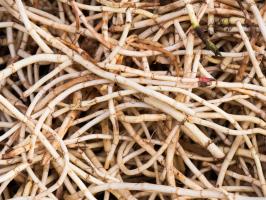When Pot Plants Mature to Flower
Watching your pot plants grow and mature to the point of flowering can be an exciting and rewarding experience for any gardener. There are several factors to consider when it comes to knowing when your pot plants will mature to flower. Below are some important things to keep in mind.
Genetics
One of the most crucial determining factors of when a pot plant will mature to flower is genetics. Every strain of cannabis has its unique genetic makeup, including factors such as growth rate, root development, and bloom time. Some strains are generally fast-growing and may begin to flower within four to six weeks, while others may take up to 12 weeks. Understanding your plant's genetics is essential for knowing when your pot plants will mature to flower.
Light Cycles
Light is a vital component in the growth of any plant. For pot plants, exposure to different light cycles is the primary trigger for flowering. Generally, plants that receive less than twelve hours of light per day will mature to flower. It's worth noting that some strains may require specific light cycles to initiate the flowering process, such as 12/12, which involves twelve hours of light and twelve hours of darkness. Keeping track of your plant's light exposure and finding the ideal conditions will help you know when the plants will begin to flower.
Nutrient Dosage
Just as humans need essential nutrients to grow, so do pot plants. Getting the right balance of nutrients is essential for healthy growth and timely maturation. Paying attention to the recommended nutrient dosage for your specific strain will help your pot plants mature to flower at the appropriate time. Under-feeding or overfeeding your plants can significantly impact the growth rate, leading to delayed flowering, weak structure, and lower yields.
Air Circulation and Humidity
Adequate air circulation and humidity levels are vital for good pot plant growth. Lack of air circulation can lead to stagnant moist air, creating an ideal breeding ground for mold and pests. The ideal humidity range for pot plants is between 40% and 60%, depending on the stage of growth. High humidity levels can cause a delay in flowering and stunt growth rate. Maintaining the right air circulation and humidity-level will help your pot plant mature to the flowering stage at an appropriate time.
Conclusion
Knowing when your pot plants will mature to flower involves a combination of several factors, including genetics, light exposure, nutrient dosage, air circulation, and humidity. By providing the ideal conditions for your pot plant's growth, you can expect a healthy plant with a timely maturation process. Observing your plant's development and making the necessary adjustments along the way will guarantee a bountiful yield of high-quality buds.

 how many times do yo...
how many times do yo... how many planted tre...
how many planted tre... how many pine trees ...
how many pine trees ... how many pecan trees...
how many pecan trees... how many plants comp...
how many plants comp... how many plants can ...
how many plants can ... how many plants and ...
how many plants and ... how many pepper plan...
how many pepper plan...

































